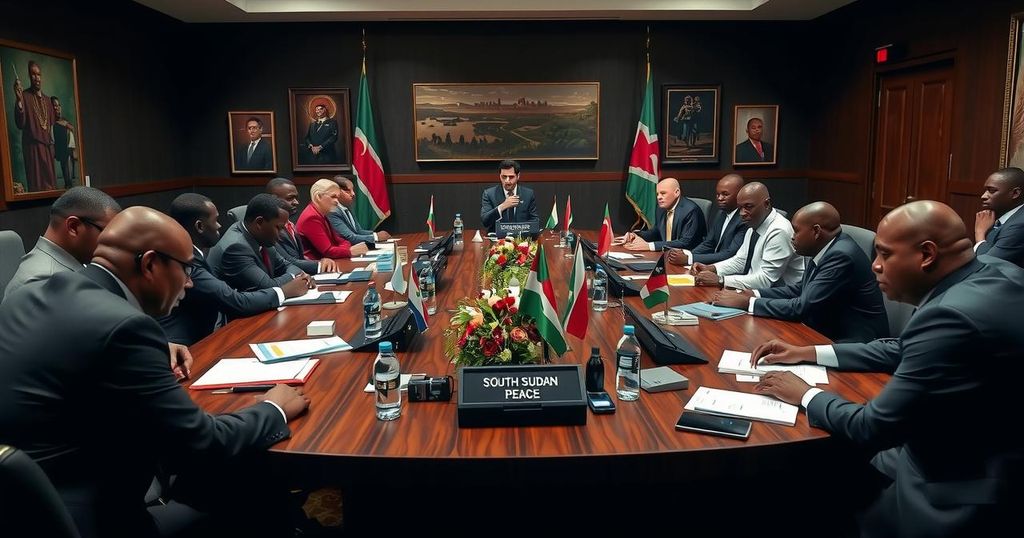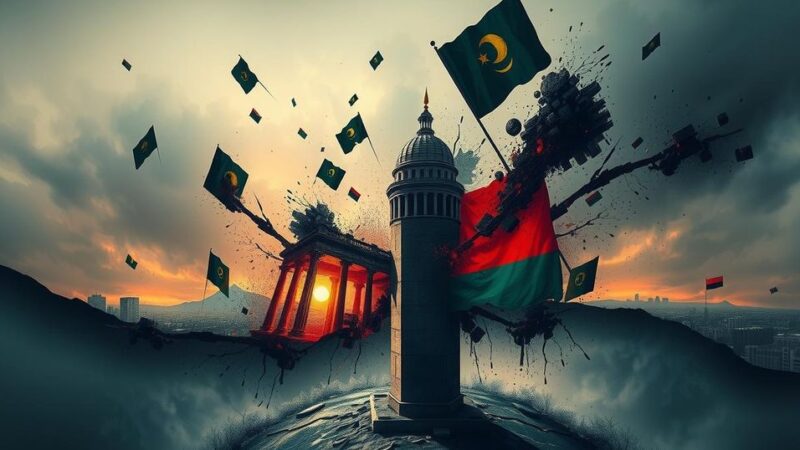After a four-month hiatus, peace talks in South Sudan have resumed in Kenya following the dismissal of a government delegation. These negotiations aim to address the interests of opposition factions not included in the 2018 peace agreement, which ended a devastating civil war. Key issues remain, including economic challenges and human rights concerns, as leaders urge commitment to previously established agreements.
The peace talks in South Sudan have recommenced in Kenya after a four-month hiatus, which followed the dismissal of the former government delegation. These negotiations represent a critical effort to bring an end to the protracted conflict that has severely affected South Sudan’s economy. Involved parties include the South Sudanese government and opposition groups that did not participate in the 2018 agreement that ended a devastating civil war, resulting in over 400,000 fatalities.
Initially launched in May under the moniker Tumaini, meaning hope in Swahili, the discussions yielded a “commitment declaration” aimed at fostering peace. However, the process stalled after President Salva Kiir dismissed the previous government delegates. A newly appointed team faced challenges traveling to Nairobi on two separate occasions without explanation. President Kiir indicated that the Nairobi discussions are intended to address and include the concerns of dissenting factions, rather than to replace the existing 2018 peace agreement.
Despite the ongoing conflict, South Sudan has postponed its elections from December 2024 to 2026, primarily due to difficulties in voter registration stemming from financial constraints. The nation, grappling with economic turmoil, has seen government employees go without salaries for over a year, exacerbated by disruptions in oil exports caused by a damaged pipeline in Sudan, where civil war is ongoing.
In the course of the negotiations, both parties voiced their opposition to a new law facilitating detentions without arrest warrants, citing violations of human rights protocols. Chief mediator Lazarus Sumbeiyo urged delegates to reach consensus on unresolved issues. Pagan Amum, leader of the South Sudan Opposition Movement Alliance, emphasized the urgency of adhering to prior agreements to stave off disintegration. Likewise, government representative Kuol Manyang Juuk called for unity among the parties, stating their goal is to build on previous achievements.
The South Sudan peace talks are part of ongoing efforts to resolve conflicts between the government and opposition factions that have not yet integrated into the framework established by the 2018 peace agreement. After years of civil unrest and economic decline, these discussions aim to address lingering grievances while maintaining a commitment to the principles outlined in prior accords. The situation is compounded by a deteriorating economic landscape and human rights controversies, underscoring the complexity of the negotiations. South Sudan’s economic condition has been negatively impacted by various factors, including prolonged civil conflict and damage to vital infrastructure such as oil pipelines. This context is essential to understand the urgency and significance of the peace talks, as they are viewed as potentially the final opportunity to avert further chaos and complete state collapse.
The resumption of peace talks in South Sudan marks a critical juncture in the country’s efforts to stabilize following years of conflict. With key stakeholders engaging in discussions aimed at integrating dissenting groups while resolving outstanding issues from previous agreements, there remain significant challenges ahead, particularly concerning economic stability and human rights. The success of these talks will be pivotal in determining the future of South Sudan amidst a backdrop of societal fragmentation and economic hardship. As leaders express the necessity of adherence to established agreements, the ongoing dialogues must navigate complex political landscapes to foster lasting peace and avoid the pitfalls of past negotiations.
Original Source: abcnews.go.com






